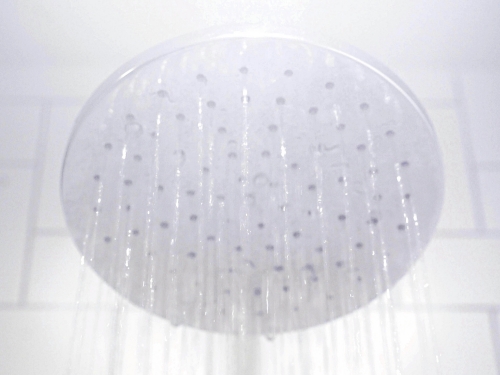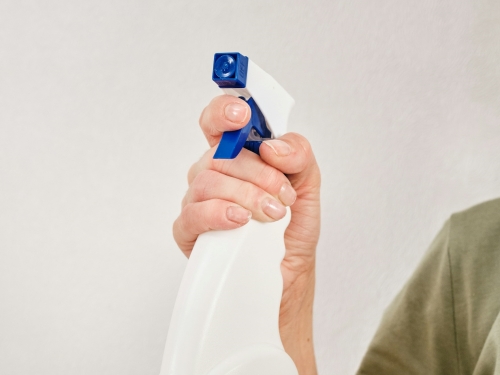Winter Dry Air: Common Symptoms and Potential Solutions
Heating your home in the winter is essential. However, winter heating presents a series of unique challenges, including the problem of dry air from the HVAC system, which creates health issues. That's the bad news. The good news is that there are steps you can take to mitigate problems caused by dry air in the winter. In this post, Steve's Air Duct Cleaning team will examine the issue of winter dryness and explore some recommended solutions.
How Dry Air Affects Your Health
Heating your home during the winter can produce various negative health effects because space heaters and central heating systems lower indoor humidity levels. In some cases, low humidity may be considered a good thing, as in the southwest desert, where temperatures routinely exceed 100°. Still, low humidity makes it possible to live a reasonably normal life.
However, while being stuck inside during the winter with dry air may not seem like a big deal at first, over time, it will cause some people to experience skin problems, respiratory problems, dry eyes, and more. (All issues would occur if you spent enough time outside in the desert southwest.)
Dry Air and the Respiratory System
Of the various health problems that can occur due to dry heat, the most serious are those that affect the respiratory system. These happen because dry air affects the mucous membranes of the nose and throat, causing them to dry up. These are the first line of defense a person has against airborne pathogens, but when their function is compromised, their respiratory tract cannot capture and eliminate those pathogens. In addition, dry air is known to exacerbate conditions such as asthma, bronchitis, and sinusitis, making their symptoms worse.

Dry Air and Your Skin
The skin is the human body's largest organ and acts as a barrier between the body and the same airborne pathogens that can wreak havoc with the respiratory system. When the skin is exposed to dry air for months during the winter, its natural protective abilities become compromised. It loses its normal elasticity and, in many cases, will crack and flake away. All dangerous microorganisms can then enter through dry, cracked skin causing infections.
One of the easiest ways to avoid skin problems from dry air is to regularly apply moisturizer to your skin the same way you would apply sunscreen to protect your skin if you were sitting on the beach.
Dry Air and Your Eyes
Another issue affecting countless people subjected to dry air in the wintertime is eye irritation. The eyes need to stay moist to function properly. If the air is too dry for too long, the thin layer of moisture protecting the eyes can evaporate, leaving the eyes red and dry. Extremely dry eyes can be very uncomfortable. But more than that, the cornea can become susceptible to damage, and the risk of eye infections increases significantly. Those who wear contact lenses are more susceptible to these problems than others since the contact lenses depend on that thin layer of moisture that naturally covers the eyes.

Other Issues Caused by Dry Air
While most problems related to dry air in the wintertime are physical, some are mental. Dehydration is often considered a summer problem when people sweat too much and don't drink enough fluids to compensate. However, dehydration can also occur during the winter due to extremely dry air pulling moisture out of the skin.
Initial problems will likely manifest as skin issues, but if left unchecked, other classic symptoms of dehydration will start to surface - including headaches, fatigue, cramping, confusion, and general discomfort.
In addition, dry air can produce sore throats, nasal congestion, and night coughing, while dehydration can disrupt normal sleep patterns and make a person irritable and less productive.
“If you can see your breath in the cold, dry air – that’s water leaving your body. People don’t notice sweat nearly as much at this time of year, and performing the same, normal, everyday activities without consuming water can lead to mild dehydration.”
— International Bottled Water Association
What to Do to Counteract Dry Air in the Winter
Dry air is a real problem for countless people in Broomfield and places like it. Fortunately, there are things you can do to counteract the effects of dry air inside your home, and none of them require a huge investment or lifestyle changes you don't want to make.
The first and easiest way to raise the humidity levels in a room is to buy an electric humidifier. Humidifiers today are far more energy-efficient than their predecessors from the 20th century. Just place them in your room, close the door, and turn them on. It might take a few days before you start seeing your dry air symptoms regress but don't give up. It will help.

Addressing Common Symptoms of Dry Air
While using a humidifier is one of the most effective ways to combat these problems, there are also other practical solutions that can help alleviate the effects of dry air. The table below highlights ten common issues caused by dry air and alternative solutions to improve indoor air quality and personal comfort.
| Issue Caused by Dry Air | Possible Solutions |
|---|---|
| Dry, itchy skin | Use a moisturizer, drink more water, take lukewarm showers |
| Chapped lips | Apply lip balm, stay hydrated, avoid licking your lips |
| Dry, irritated eyes | Use artificial tears, wear protective eyewear, take screen breaks |
| Nosebleeds | Apply nasal saline spray, avoid excessive nose blowing, use petroleum jelly in nostrils |
| Increased static electricity | Wear natural fiber clothing, use anti-static spray, lightly mist fabrics with water |
| Respiratory irritation (cough, sore throat) | Drink warm fluids, gargle with salt water, avoid smoking or strong scents |
| Worsened allergy or asthma symptoms | Maintain proper ventilation, use air purifiers, regularly clean bedding |
| Cracked wooden furniture or flooring | Apply wood conditioner, control temperature fluctuations, keep furniture out of direct sunlight |
| Increased risk of illness (viruses spread more easily) | Wash hands frequently, clean surfaces regularly, maintain a balanced diet for immune support |
| Poor sleep quality | Keep bedroom cool but not too dry, use breathable bedding, avoid caffeine before bed |
SOURCES: WebMD, Healthline
Adding Moisture to the Air Without a Humidifier
If you don't have a humidifier or aren't keen on getting one, there are other things you can do to add moisture to the air in your home. Here are a few common solutions homeowners employ:
- Boil water — Everybody knows boiling water releases enormous amounts of water vapor into the air. So boil some water, or make some pasta, or steam some vegetables. It will help take the edge off the dryness.
- Use a stovetop simmer pot — Simmering a pot of water with cinnamon sticks, citrus peels, or herbs not only humidifies the air but also makes your home smell great.
- Take hot showers — A nice hot shower will release a lot of moisture into the air. Leave the bathroom door open while you shower, turn off any exhaust vents, and maybe place a fan in the bathroom that blows out into adjoining rooms.
- Use a damp towel on vents — Placing a damp towel over a heating vent will allow the moisture to evaporate into the air gradually.
- Spray water into the air — Using a spray bottle, mist water into the air occasionally to give an instant boost of humidity.
Here's a video with four additional ideas to increase your home's humidity without a humidifier.
Call Steve's for Expert Denver-Area Duct Cleaning
While thinking of ways to improve the indoor environment this winter, consider calling Steve's Air Duct Cleaning and scheduling HVAC cleaning for your home. This will help ensure that while the air circulating through your house may be dry, it's not recirculating pet dander, allergens, and environmental pollutants and making everything worse.
Explore Our Air Duct Cleaning Services
Visit the page below to learn more about the duct cleaning services we offer to homes and businesses throughout the Denver area.
Air Duct CleaningWe have more than 45 years of experience helping the people of Colorado maintain clean, hygienic homes. So whether you need a professional to to clean your ductwork or your dryer vents, call us at 720-419-7792.
Start Breathing Easier.
Your air ducts are the lungs of your home and keeping them clean keeps you and your family healthier and your HVAC equipment working optimally.







